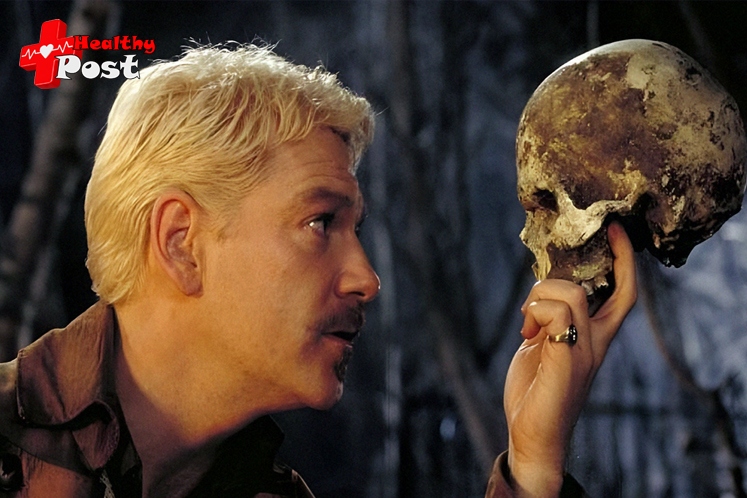
Fear of Death: Why It Occurs and How to Overcome It
How to understand that fear (Fear of Death) has turned into a phobia, and how not to let this fear take away your joy in life.
From this article you will learn:
- what is the fear of death and how is it formed ;
- when does fear of death become a problem and how does it manifest itself ;
- what does the fear of death lead to and what makes it worse ;
- How to overcome the fear of death and how a psychologist can help in this case.
Elena Klyon
Clinical psychologist, cognitive behavioral therapist, family psychologist-psychotherapist. Works at the Federal Center for Medical Sciences of the Federal Medical and Biological Agency of Russia, the psychological online center ” Mentalochka “, and also has a private practice as a psychologist-psychotherapist.
What is the fear of death
Fear of death is a basic fear of any living being. In the case of humans, fear of death often means :
- anxiety about possible physical suffering at the moment of dying;
- fear of the unknown and loneliness “on the other side” of life;
- fear of wasting time in life;
- worries about the body after death (due to its destruction, disappearance, desecration).
Such experiences are typical during difficult periods, such as a midlife or late-life crisis. It is also normal to experience fear in circumstances where life or health is at risk.
How the fear of death is formed
So, the fear of death is formed at three levels: biological, psychological and social.
The first level, biological, is a gift of evolution. The basic fear acts as an innate defense mechanism that helps us avoid situations that threaten life and well-being. In addition, the fear of death helps us adapt to external conditions: for example, not to get close to potentially dangerous strangers in a bar.
A person knows that life is finite, and this stimulates reflection, searching for meaning in existence, defining one’s priorities and setting goals higher than “eat, sleep, reproduce.” Thus, the fear enters the psychological plane. The thirst for life collides with the fact of inevitable finiteness, and much is born from this confrontation: seeing that we are continuously moving towards the end, we begin to appreciate the path.
At the third level, the level of society and culture, the fear creeps deep into customs and beliefs.
For example, death in some fairy tales is a villain, whom the heroes deceive and outwit in every possible way, and ultimately win with love and kindness. In such stories, people try to tame the fear of the inevitable and create artistic images of death that can be overcome. And in some religions, the fading of life is perceived as liberation from earthly suffering (for example, in Buddhism). In others, it is the gate to meeting God (in Christianity).
There is no consensus on the influence of religion on the fear of death, but there are hypotheses that non-religious people and people with uncertain or ambivalent beliefs fear death more.
To summarize: the fear of death is necessary for our safety – physical and psychological. But sometimes the reasonable and natural caution inherent in us by nature goes beyond the norm and prevents us from living a full life.
When the fear of death becomes a problem
In cases where this fear develops into panic, becomes overgrown with obsessive thoughts and significantly affects a person’s daily life and affairs. Such a pronounced fear of death is called thanatophobia .
The main difference between fear and phobia is that, when faced with the latter, a person realizes the irrationality of the experiences, but cannot cope with them.
“Thanatophobia is a mental disorder in which a person experiences a panic fear of their own death or the death of loved ones. This disorder can cause obsessive thoughts, as well as restrictive behavior that prevents a person from leaving the house and interacting with the outside world.”
How does the fear of death manifest itself?
Fear is an emotion. And, like any other emotion, fear manifests itself at the level of the body and psyche. Thus, physical symptoms of the manifestation of the fear of death include:
- dizziness and loss of consciousness when thinking about death or watching scary movies;
- increased heart rate and increased sweating in the same situations;
- changes in eating habits and weight, especially if the fear of death is intertwined with hypochondria;
- sleep disturbances , such as nightmares.
If a person feels constant fatigue and malaise or thinks a lot about death in objectively safe situations, then the fear becomes irrational and threatens to develop into a serious phobia. Regularly arising fear of death leads to a decrease in psychological stability. As a result, a person risks facing:
- with increasing anxiety;
- with a desire to avoid any, even habitual actions, public places and communications;
- with constant obsessive thoughts about death.
Unfortunately, it is extremely difficult to get rid of the same obsessive thoughts on your own. At the same time, such manifestations of the fear of death significantly darken life.
What does the fear of death lead to?
Fear of death interferes with a person’s emotional well-being and ability to function in everyday life. This is because the fear of one’s own death leads to physical and psychological fatigue.
“The fear of death affects well-being and psychological comfort. And health problems that arise due to stress lead to depression and isolation. A person cannot leave the house, go to a crowded place or meet friends at night.”
Elena Klyon
Let us recall: the main problem is that the fear of death can develop into thanatophobia. For mental health, the fear of death is fraught with an increased risk of developing an anxiety disorder or depression, as well as the emergence of suicidal thoughts. In addition, pathological fear of death sometimes turns out to be a symptom of various disorders, for example:
- delusional disorder;
- post-traumatic stress disorder (PTSD) and complex post-traumatic stress disorder (CPTSD);
- eating disorders (EDs);
- obsessive-compulsive disorder (OCD).
Thanatophobia is linked to OCD on the basis of intrusive, disturbing thoughts: a person constantly searches for information about possible diseases or risks of certain events.
What makes the fear of death worse
Fear of death can develop and intensify for various reasons:
- due to the loss of a loved one;
- due to developed perfectionism and an increased desire for control;
- due to low tolerance for the unknown;
- due to loneliness and low self-esteem;
- due to a fascination with the theme of death.
Some people enjoy thrillers, horror films, true crime, or violent programs about criminals and their crimes. Fear, like a sponge, is nourished by various factors: hobbies, past experiences or unexpected situations. But the main thing is to remember that any fear of something lives in the head, and we are able to cope with it.
How to overcome the fear of death
One way is to change your attitude towards it. People have four types of attitudes towards death:
- rejection of death as such and avoidance of this topic;
- the perception of earthly death as a transition to a better afterlife;
- the idea of death as a better alternative to existence on earth, full of suffering and pain;
- understanding the naturalness of this stage and humility before the inevitable end.
To neutralize possible worsening of fear, it is worth going the opposite way: try to comprehend the phenomenon of death and talk honestly about death with yourself. For example, study philosophical concepts of the world, religious teachings and anthropology . It is quite possible that among all the images of death invented by people over thousands of years, there will be something that will calm the raging fear inside a little.
If you can’t cope with your fear at the belief level, you need to find a suitable means to control your anxiety. To begin with, you can try:
- mindfulness practices (such as meditation ) to learn how to focus on yourself in time and get out of stress;
- techniques for increasing self-esteem and personal responsibility in order to find the strength to analyze the situation and your position in it;
- breathing exercises to reduce anxiety (for example, breathe in a 4-7-8 pattern: inhale for a count of four, hold your breath for a count of seven, and exhale for a count of eight);
- hobbies and activities that lift your spirits;
- a healthy lifestyle (that is, physical activity, proper nutrition and quality sleep).
The main thing is to notice the sensations in the body at the moment of acute fear and try to feel each part of the body, arms, legs. You can also use the classic self-help exercise for a panic attack – 5-4-3-2-1.
And checking with reality also helps – for example, through questions:
- How safe are the conditions I am currently in?
- What exactly is threatening me physically and emotionally?
- Is there someone nearby I trust?
It is also important to remember that you should not isolate yourself. People need other people to feel meaningful in their own existence. Creating a support network will help you share your experiences with friends and family. Having stable, strong relationships reduces the fear of death.
And it is also necessary to search, regularly rethink and build new values and meanings in life. For this, in particular, you can turn to the works of existential psychologists. For example, to the book by Irvin Yalom ” Staring at the Sun. Life without fear of death “. The shortest introduction to his philosophy: people who know why to wake up in the morning are less worried about the end of their existence.
Unfortunately, if anxiety is having a significant impact on your life, neither such beliefs nor self-help methods will improve the situation. If consciousness is suppressed by a phobia, then it is difficult to unravel the tangle of anxieties, but by working with a psychologist, this can be done.
How a psychologist works with the fear of death
When treating pathological fear of death, a comprehensive approach is important. You can visit a psychiatrist to get the necessary medications to help cope with anxiety and begin a course of psychotherapy. When choosing a psychologist, Elena Klen recommends paying attention to specialists of at least three approaches:
- group therapy;
- exposure therapy ;
- cognitive behavioral therapy.
The problem of mortality is also worked out within the framework of the existential direction , which is based on work with the themes of death, loneliness, freedom and the meaninglessness of life.
These directions help to rethink the phenomenon of death and accept this stage of life as a given. And also to understand how a person sees his full, happy and meaningful life.
However, a psychologist of any direction strives to study the problem deeply and comprehensively – both the phenomenon itself and the internal foundations of the request.
First of all , he diagnoses what kind of fear it is (natural or irrational) and finds out how exactly it affects a person’s life and how destructively. Then the specialist determines what lies behind the anxiety – specifically the fear of death or a symptom of other, deeper experiences. For example, dissatisfaction with one’s own life and fear of loneliness.
Fear of death is an important feeling that is inherent in us by nature. But sometimes it becomes a phobia and prevents us from living fully. Unfortunately, when we avoid fears, we further aggravate our physical and mental problems. Therefore, it is better to consult a psychologist, work on your attitude to death and feel freedom before the inevitability of life’s sunset.


2 thoughts on “Fear of Death: Why It Occurs and How to Overcome It”